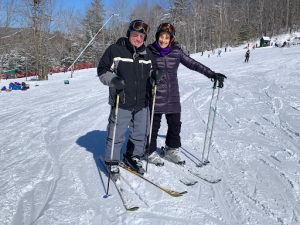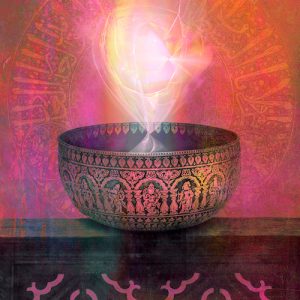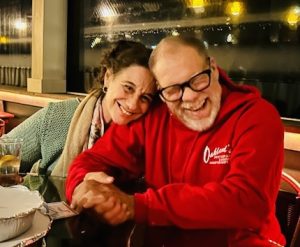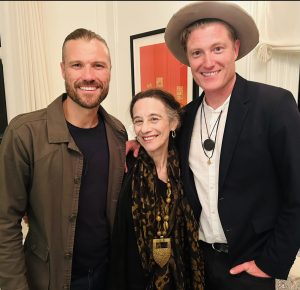
The Fruits of Forgiveness
My Dad is the longest-running officiate in Long Island history. And, as he’ll soon turn 89, he’s also the oldest. To say I’m proud of him is an understatement. To say I love him doesn’t begin to put my feelings into words.
 I’ve always worshiped my father. He’s not only a seasoned sportsman, but was also a 5th grade teacher who eventually became principal. After he and my mother divorced, I would cherish the days we had together. Yet when I was 10, in response to my mother’s remarriage, he made the choice to sign away his parental rights to my new step-father. He thought he was doing the right thing. Particularly as my mother was threatening to take him back to court if he didn’t comply, and he had a new wife who felt it an insult he’d had a daughter before she knew him and forbid me to be part of their newly forming family. Yet when the visits stopped and the phone went silent, I lost my anchor in life and became emotionally homeless; spinning downward into the underbelly of eating disorders, addictions and promiscuity, as so many fatherless girls do. As I feared my mother more than I wanted to be connected with her, I felt utterly orphaned; a frozen sense of aloneness spinning a gnarly web in my solar plexus that took me decades to even begin to untangle.
I’ve always worshiped my father. He’s not only a seasoned sportsman, but was also a 5th grade teacher who eventually became principal. After he and my mother divorced, I would cherish the days we had together. Yet when I was 10, in response to my mother’s remarriage, he made the choice to sign away his parental rights to my new step-father. He thought he was doing the right thing. Particularly as my mother was threatening to take him back to court if he didn’t comply, and he had a new wife who felt it an insult he’d had a daughter before she knew him and forbid me to be part of their newly forming family. Yet when the visits stopped and the phone went silent, I lost my anchor in life and became emotionally homeless; spinning downward into the underbelly of eating disorders, addictions and promiscuity, as so many fatherless girls do. As I feared my mother more than I wanted to be connected with her, I felt utterly orphaned; a frozen sense of aloneness spinning a gnarly web in my solar plexus that took me decades to even begin to untangle.
When my father and I reconnected later in life, he spent years apologizing. I wanted to forgive him from the start, and I did things to try to facilitate things in that direction. Yet the consequences were so great, the residue so ingrained and the damage so deep. I was living with so many unhealthy patterns born from his mistakes. My tendencies to sleep with married men who were never going to be there for me when I needed them. Or the constant experience of being ghosted by people who mattered. Or years spent single and completely under supported in life . It’s one thing to pardon someone in theory, and another to outgrow the imprinting left behind in the wake of a wound.
It wasn’t until years later that I finally understood what was keeping the old trauma alive and well between us. It wasn’t the decision made years before, but the subtle yet dramatic dynamic of longing that was still very active in our relationship. My father had given me a Valentine’s Day card, and in the card he’d written, “Although I missed raising you and will always feel sad about that, I love you with all my heart.” As I read his message, I had an Epiphone. I realized the ritualistic ways we connected with one another was actually perpetuating the “I’m an orphan” story I’d formed in response to the initial wounding of losing him. I suddenly saw that true forgiveness would require a letting go of this story entirely, and a recalibration of who we are for each other. I looked up and said, “Dad, I don’t want to be an orphan who is longing for her father any longer. I’m tired of that story. Can we just let it go now, and recreate our relationship by acknowledging and affirming how much we actually belong to each other now?”
That insight was key to reclaiming one another and disappearing the old story of separation and failure that had danced between us for decades. My shift out of being overly identified with the traumatized self of my past liberated me to finally create relationships with others that now serve as a happy and secure foundation for my life. I now know that in addition to letting victimization and bitterness go, that we also need to claim a new and better story; one that is life affirming and can give us joy.
Two years ago my father and I went on a ski trip. Mind you, he was 86 at the time and frankly, I was hard pressed to keep up with him as he dashed down the mountain! I’m looking forward to our next trip, and have been working out to make sure that I beat him down the hill this time. A Course in Miracles tells us, “You can have a grievance or a miracle; you cannot have both.” I’m grateful I chose the latter.



